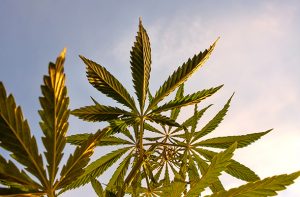 For the past few weeks, Delta-8 THC companies have experienced a sense of relief regarding the federal legality of Delta-8 tetrahydrocannabinol (Delta-8 THC).
For the past few weeks, Delta-8 THC companies have experienced a sense of relief regarding the federal legality of Delta-8 tetrahydrocannabinol (Delta-8 THC).
On September 15, 2021, the DEA wrote a response letter to the Alabama Board of Pharmacy, in which the federal agency clarified the control status of Delta-8 THC under the Controlled Substances Act (CSA).
In its letter to the Alabama Board of Pharmacy, the DEA explained that “cannabinoids extracted from the cannabis plant that have a Δ9-THC concentration of not more than 0.3 percent on a dry weight basis meet the definition of ‘hemp’ and thus are not controlled under the CSA.” In addition, the DEA pointed out that THC “synthetically produced from non-cannabis materials” is controlled. (Emphasis added).
Because the vast majority of Delta-8 THC produced in this country is obtained through the conversion process of hemp-derived cannabidiol (CBD) — if you read this column, you may recall that Delta-8 THC is found in extremely low quantities in the hemp so its direct extraction from the plant isn’t economically viable — some advocates have interpreted the DEA’s nonbinding policy statement, including the language found in footnote 1 of the letter (“only tetrahydrocannabinol in or derived from the cannabis plant — not synthetic tetrahydrocannabinol — is subject to being excluded from control as a “tetrahydrocannabinol[] in hemp”), to suggest that Delta-8 THC produced from hemp-derived CBD that contains no more than 0.3% THC on a dry-weight basis is lawful because it is produced from “cannabis material” that is excluded from the CSA.
While on its face this conclusion makes sense, it also seems to omit one important fact: the vast majority of Delta-8 THC manufactured through this conversion process is not entirely derived from “cannabis materials.” Instead, the substance is obtained through a chemical process involving “non-cannabis materials,” such as solvent and acids — Delta-8 THC is essentially a synthetic compound made from a hemp-derived ingredient. So, given this, the DEA could very well treat most Delta-8 THC currently produced in this country as a controlled substance. Also, let’s not forget that the agency has consistently shown hostility towards cannabis so a sudden paradigm shift seems unlikely.
But semantics aside, even IF the DEA deemed that Delta-8 THC produced through the chemical conversion of hemp-derived CBD is in fact “derived from cannabis material,” and thus, is legal under the CSA, the DEA’s position would not give carte blanche to manufacture Delta-8 THC in states where the substance is expressly banned or regulated under the adult-use program nor would it magically legalize the manufacture, sale, and marketing of Delta-8 THC products intended for human consumption under the Food, Drug and Cosmetic Act.
In accordance with the Agriculture Improvement Act of 2018 (the 2018 Farm Bill), the FDA is the federal agency tasked with regulating hemp-derived products intended for human consumption, not the DEA.
On September 14, 2021, following an uptick in adverse event reports involving the popular cannabinoid and unauthorized marketing practices directed at minors, the FDA published a consumer update, warning consumers of the serious health risks associated with the consumption of Delta-8 THC products. In its consumer update, the FDA reminded the public that Delta-8 THC products have yet to be evaluated and approved by the FDA for safety and that the agency was especially troubled by the following issues:
- the numerous adverse side effects caused by the consumption and exposure to Delta-8 THC
- the enhanced intoxicating effects of Delta-8 THC, which tend to contain much higher levels than are naturally occurring in the hemp pant
- the use of unsafe chemicals in the conversion of hemp-derived CBD into Delta-8 THC as well as the presence of unsafe contaminants and other potentially harmful substances, and
- the accessibility of Delta-8 THC to minors, who are often directly targeted in Delta-8 THC companies’ marketing efforts
All this to say that even if the DEA isn’t likely to take enforcement actions against manufacturers of Delta-8 THC, those engaged in this market should not conclude that making and selling finished Delta-8 THC products is an easy or risk-free endeavor. Delta-8 THC has enabled the hemp industry to turn the glut of CBD into something profitable; however, economic growth should not trump compliance issues, including consumer safety. For years now, hemp advocates have worked tirelessly to destigmatize and legitimize the plant and its derived products by advocating for strong, clear regulations to give the industry an opportunity to show the plant’s full potential and thrive. So I hope the DEA’s letter encourages Delta-8 THC stakeholders to honor the hemp industry’s efforts by meeting all applicable regulatory requirements and by prioritizing safety issues.
 Nathalie Bougenies chairs Harris Bricken‘s hemp CBD practice group and focuses her practice on health and wellness, in addition to corporate transactions and regulatory compliance. For the past three years, Nathalie has helped clients navigate the complex regulatory landscape of hemp products intended for human consumption and advises domestic and international clients on the sale, distribution, marketing, labeling, and importation of these products. Nathalie frequently speaks on these issues and has made national media appearances, including on NPR’s “Marketplace.” She also authors a weekly column for “Above the Law” that features content on cannabis policy and regulation and is a regular contributor to her firm’s “Canna Law Blog.” For three consecutive years, Nathalie has been named Rising Star by Super Lawyers.
Nathalie Bougenies chairs Harris Bricken‘s hemp CBD practice group and focuses her practice on health and wellness, in addition to corporate transactions and regulatory compliance. For the past three years, Nathalie has helped clients navigate the complex regulatory landscape of hemp products intended for human consumption and advises domestic and international clients on the sale, distribution, marketing, labeling, and importation of these products. Nathalie frequently speaks on these issues and has made national media appearances, including on NPR’s “Marketplace.” She also authors a weekly column for “Above the Law” that features content on cannabis policy and regulation and is a regular contributor to her firm’s “Canna Law Blog.” For three consecutive years, Nathalie has been named Rising Star by Super Lawyers.

